Blog

Medical Emergencies: When Should You Seek Medical Assistance
The internet made it possible to access information quickly. If you hear a ringing in your ear that others cannot hear, you should research tinnitus. Or if you want to understand COVID-19 better, you can easily find scientifically-verified information on the World Wide Web.
Medical information may be readily available to the general public, but it does not mean that you will not ask for help from your family physician during medical emergencies. Remember that medical assistance is sometimes necessary for the treatment of a disease.
At one time or another, you might have asked yourself if you should see your family physician. Although there are no established rules on when you should see your doctor, you may establish guidelines on when the situation necessitates it.
How Do You Know When to See Your Doctor?
In the event of a medical emergency, you should call 911 instead of visiting a doctor’s office. You should go to the hospital if you have experienced chest pains or difficulty breathing after eating. If anyone loses consciousness, you should seek immediate medical care for them.
On the other hand, you should consult your family physician if you cannot move your limbs or experience swelling in your arms or legs. Seek a doctor’s opinion when you experience severe abdominal pain.
Colds or Flu
Considering that COVID-19 symptoms are similar to the common flu, it is prudent to seek immediate medical care if you exhibit the following symptoms:
- Fever
- Loss of taste or smell
- Cough
- Body malaise
- Shortness of breath
- Diarrhea
- Irritated eyes
Diarrhea
People suffer from diarrhea occasionally. It is often harmless, but there are times that you should reach out to your family physician. Here are the signs to watch out for:
- It has been more than three days.
- Black, tarry stools
- Blood in your stool
- Severe abdominal pain
- Signs of dehydration (parched mouth or skin, fatigue, decreased urination, confusion, or irritability)
Digestive Issue
The digestive issue is not exclusive to abdominal pain, but it includes pain in your esophagus. If you noticed the following symptoms, you should call your family physician:
- It feels like the food is caught in your throat or chest.
- Heartburn that does not go away or worsen.
- You find it difficult or painful to swallow.
- Sore throat that does not go away.
- Nausea that will not go away.
- Vomiting of blood or bile
- Severe or persistent abdominal pain
- Constipation or diarrhea that does not go away
- Black or bloody stool
Head Injury
Getting a bump on the head is not uncommon. It can be a minor issue, but if you notice signs of concussion, you should immediately consult a doctor. Here are a few symptoms:
- Dizziness and balance problems
- Nausea and vomiting
- Confusion
- Concentration and memory problems
- Feeling sluggish or foggy
- Sensitivity to light or noise
- Sleep problems
- Mood changes
Conclusion
Most of us mistake only visit the family physician when we are sick, but you should consider going to your doctor even if you feel well. You should undergo regular physical exams. Thus, you stay on top of your health.
If you are looking for a respected family physician in Santa Fe, visit Aspen Medical Center. Our doctors can provide urgent care and carry out a physical exam for you. Come to our center for all of your medical needs!
